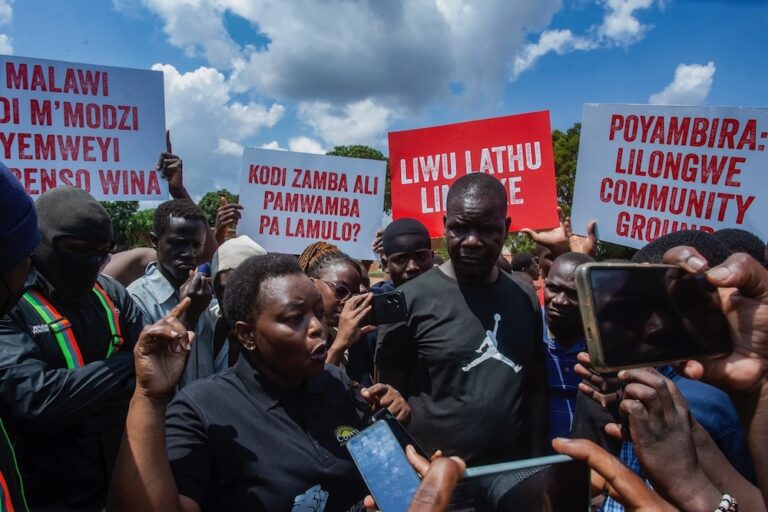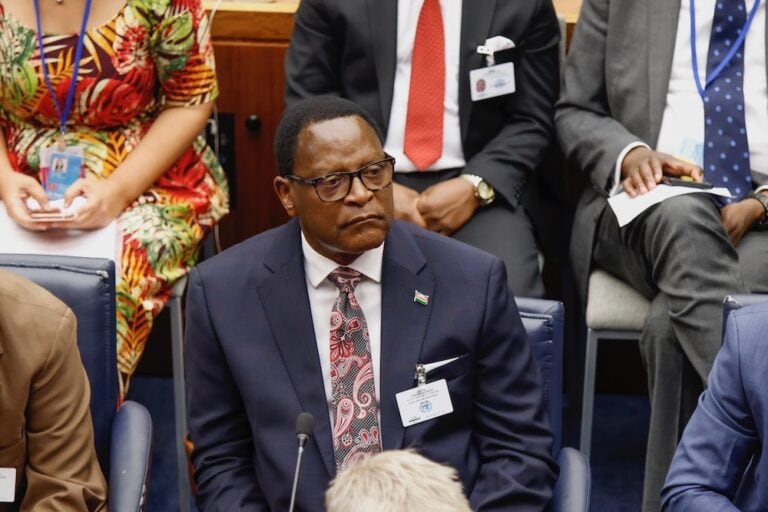(MISA/IFEX) – Director of Public Prosecutions (DPP) Fahad Assani has written to the Malawi Police, ordering it to discontinue arbitrary arrests of journalists, and warning that such acts are unconstitutional. Assani’s letter closely followed his statement in late October 2003 in which he said he would not prosecute “Daily Times” reporter Frank Namangale, whom the […]
(MISA/IFEX) – Director of Public Prosecutions (DPP) Fahad Assani has written to the Malawi Police, ordering it to discontinue arbitrary arrests of journalists, and warning that such acts are unconstitutional.
Assani’s letter closely followed his statement in late October 2003 in which he said he would not prosecute “Daily Times” reporter Frank Namangale, whom the police arrested for authoring an article in which he quoted police sources as saying President Bakili Muluzi’s son had been arrested for armed robbery. Police later clarified that the arrested person was Muluzi’s nephew. Namangale was charged with “publishing false news likely to cause alarm to the public”.
In his letter to the regional commissioner for the South, copied to the police inspector general, the officer in charge of the Criminal Investigation Branch and other senior police officers, the DPP quoted Section 36 of the Constitution, which guarantees the media’s right to report freely and be accorded access to public information.
“This chapter cannot be tampered with by any authority except by a referendum. This emphasises the need to strictly guard the freedom of the press,” said Assani.
He added that Namangale’s article did not in any way suggest that the president was privy to the armed robbery. “To report an arrest of any member of the wider family of the state president, though regrettable, for committing a crime, cannot be said to be alarming at all,” Assani said.
The DPP then advised the police not to attack the wrong people if they are to be called professional. “If the state wants to take up issues, then the people to be taken to task are not the press persons but those that offend the law. Do not shoot the messenger; go and deal with the sender of the messenger,” he said.


